No two people feel the exact same way about any film. Thus, Team Experience is pairing up to debate the merits of this year’s Oscar movies. Here's Abe Friedtanzer and Cláudio Alves on The Holdovers…
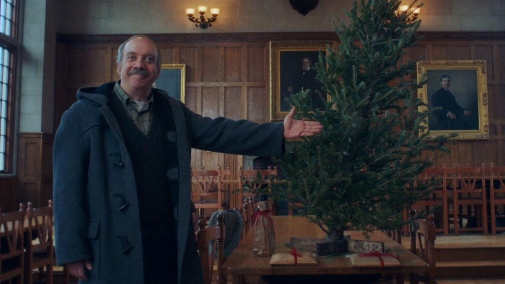
ABE: Cláudio, it is always my pleasure to talk about films with you even though I know our tastes rarely overlap. In fact, when I met you in-person at the Toronto International Film Festival last year, you noted that we were barely seeing any of the same films. I was only in Toronto for three and a half days and saw a whirlwind eighteen films in that time, the best of which was The Holdovers. My editor decided to hold my review for the theatrical release, which proved somewhat underwhelming, but fortunately there was plenty of awards acclaim for the film to keep my enthusiasm up about this gem.
I remember seeing Sideways twenty years ago and very much enjoying it as I was just starting to really get into film (and The Film Experience as a reader), and it's great to see Alexander Payne reunited with his star Paul Giamatti for a role that's perfect for him. He's one of the best parts of this film but there are so many, at least in my opinion. Cláudio, tell me about your experience of seeing the film and what did and didn't work for you...
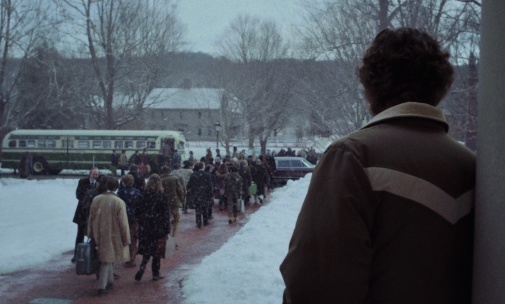
CLÁUDIO: I'm glad to be discussing film with you, too, even if it forces me to revisit one of 2023's biggest disappointments. As you said, our TIFF watchlists were very different, so I only caught up with The Holdovers back in Portugal when it was already proving itself an awards contender. Walking in, I was of two minds. On the one hand, it's an Alexander Payne movie, and I've struggled with his cinema many times before, finding its tone cruel and the rare stabs at warmth unpersuasive, even forced. But I also knew the director hadn't written this latest effort, so there was hope, not to mention the promise of a Sideways reunion. To this day, it's the only Payne film I love, so a new collaboration between him and Giamatti rekindled some enthusiasm within me.
Well, that quickly withered as the film unfolded over 133 exhausting minutes. Indeed, I have so many complaints that it's easier to start by saying what worked for me – the sense of period recreation, though not necessarily the cinematography, and the cast as a whole. I wouldn't have any of the central trio up for nominations, but they're fine. Giamatti is solid, delivering a performance that meets every expectation and offers zero surprises. Randolph's work is inconsistent, yet she manages to put forward a strong sense of loss. And, finally, Sessa is a prickly thing whose greenness as a novice screen actor conveys a level of authenticity the film sorely lacks elsewhere.
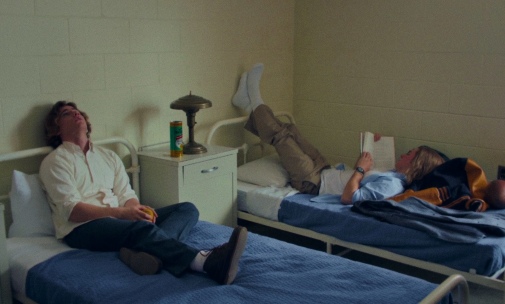
ABE: All those things that bothered you worked very well for me, particularly Sessa, whose authenticity I thought meshed very well with the film. I’ve enjoyed Randolph in a few films and TV shows recently and it’s nice to see her in this commanding turn, especially opposite Giamatti, since their characters seem to connect on a different level from anyone else even before they spend so much time in close quarters.
I always find it strange to see a winter movie in another season, walking out of the theater in shorts to head home for the night. But that wintry immersion was a pure delight, and part of it definitely came from the warm reaction from the audience. You obviously have your own feelings about Payne, which I’d love to hear more about, but how did the Portuguese crowd like the film?
CLÁUDIO: In critics' screenings, you rarely get vocal reactions from the Portuguese crowd. Even humor-heavy projects tend to be met with a polite acknowledgment of their comedy rather than loud laughter. And so it was with The Holdovers, but talking to colleagues, I know many liked it much more than I did.
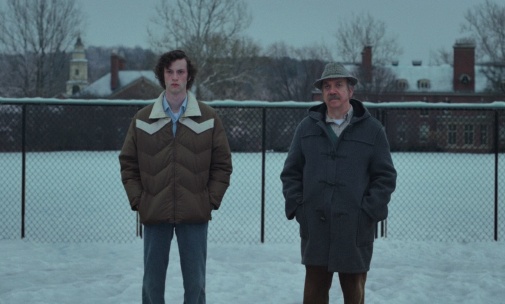
The wintry immersion you mention is well established by Payne, whose ability to set a specific, comforting tone is well deployed and a tad surprising. However, I felt his direction of actors pulls for greater sharpness that makes the sentimentality read cloying, and he hasn't figured out anything interesting to do with the camera. For all that Eigil Bryld's Spirit Award-winning cinematography tries to emulate the textures of 70s film, the framing is a constant disappointment. It's as if the director approached the pastiche style without paying attention to the particularities of what he was evoking, getting things right at a surface level but no more than that. Then again, blocking is almost a lost art, and it's not the first time I've got to say that in these Split Decisions. Payne's failure in that arena isn't note-worthy, all things considered.
What do you think about the look of The Holdovers?
ABE: The look won me over, and I actually had a wonderful conversation with Eigil a few months back about his work. I'm from New England and, though I never went to boarding school and my college experience was in New York City which was an undeniably urban environment where beautiful snow quickly turned to disgusting sludge, it's nice to be transported back to that wintry landscape. Era-wise, I also enjoyed feeling like I was in a different time. I can remember the starkness of Nebraska, another Payne immersion into another world, and this felt even more enticing and captivating.
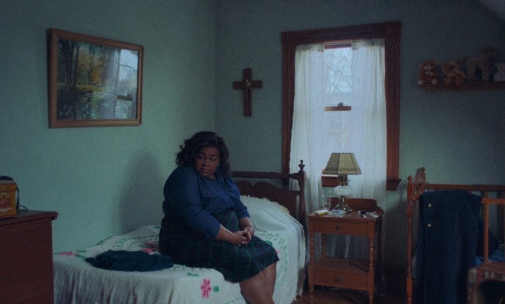
I know that when praise is heaped upon a film or a particular aspect of it and that didn't work for you, it can make it even more maddening. How do you feel about the script?
CLÁUDIO: To me, the script is a mechanic mess that feigns humanistic interest when, in fact, it regards its characters as little more than cogs in a machine of emotional manipulation. Take the students that initially stay behind at school along with our main trio. Their purpose in existence is to provide a contrast to Angus so that his prickliness doesn't seem so bad, while the first hints of softness aren't that notable either. Beyond that, they have no use, and the script gets rid of them at the first chance it gets. Mary Lamb's family is similar, for that matter. Their interaction and effect on the grieving mother get lost in a quick transition away from her story the moment it becomes interesting. Then again, Mary's existence isn't dissimilar from the forgettable students David Hemingson shoos away via helicopter ride. She's there to "humanize" the two leads and little else. If there's more there, Randolph alone forces it into existence.
Overall, I found no life in these figures, all flat and functional, unbelievable in their connection to each other and the audience. The structure is even worse, with its failures not limited to the picture's unnecessary length. Hemingson never wrote a film before The Holdovers, building his career on episodic television, which is awfully noticeable. Simply put, he doesn't know how to pace a feature.
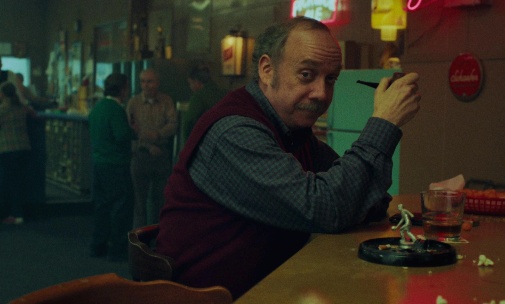
ABE: The pacing worked for me, but the film was a bit long, I'll concede. Given that I was thoroughly enjoying it, I didn't mind that at all. I think this is a case of a film that can be warm and inviting and can be cold and uninvolving, and your experience will be swayed by how you interact with it at the start.
It doesn't seem likely at this point that this movie will win any Oscars aside from Randolph - do you think any are mildly deserved, or better to send this one empty-handed in your opinion?
CLÁUDIO: I wouldn't nominate it for a single award, so a win is out of the question. Even so, it's not my fifth place in Actor, Supporting Actress, or Editing, so there are worse possible victors.
Speaking of the latter, I'm mildly fascinated by its Best Editing nomination. For me, The Holdovers' pacing issues are more related to script construction than cutting, failing at a macro level while making some odd choices within individual sequences. The use and abuse of dissolves are especially noticeable, as if daring the spectator to turn their nose up at the movie's stubborn languor. It's undoubtedly a more deserving nod than the one Kevin Tent got for The Descendants.
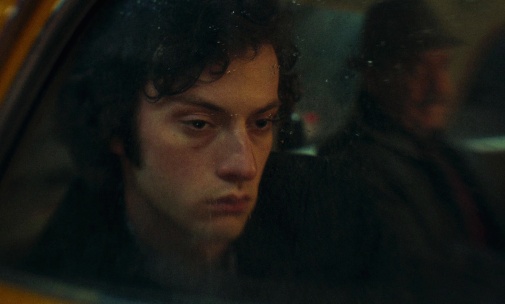
What did you think of those dissolves, those lazy transitions between moments in Angus and Paul's holiday story?
ABE: As you’d expect, I didn’t find them lazy but instead a good reminder to slow down and just appreciate the story, which did not annoy me nearly as much as it did you. I didn’t feel this film’s length, and I’m of the opinion that, the better a film is, the longer it should be because theoretically. That’s not always true, of course, but in this case I was always engaged.
I’m glad to hear that it’s not the fifth place for a few of your prizes, but I know that’s not necessarily a good thing. As we finish up, I know you said positive things about Sideways - are there any other Payne films you find at least tolerable?
CLÁUDIO: I should specify that I meant lazy in a neutral, purely rhythmic way. I appreciated those recurring dissolves to some degree, even when they become a tad distracting. If nothing else, it's a touch of style that doesn't read as derivative or feckless. Also, heaven knows a pondered tempo isn't always a flaw in my books – slow cinema is my jam!
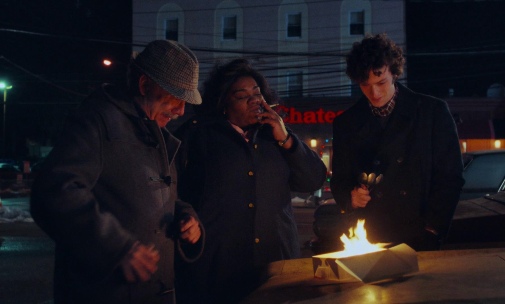
But to answer your question, Sideways is my favorite Payne and the only thing in his filmography I outright love. Beyond that, I also have a fondness for Election, though it has diminished with time and re-watches. Truth be told, I usually find something to hold on to while watching his flicks. Usually, that saving grace is in the realm of performance. I don't care for Nebraska, but Dern's work is commendable, and the same could be said about the cast of Citizen Ruth, many of the supporting players in About Schmidt, and Hong Chau in Downsizing. That last one also has nifty production design and cinematography trickery, so there's that. Upon reflection, the only one of his features I can't tolerate in any regard is The Descendants.
What about you? As we end this conversation, I'd love to know more about your relationship with this director.
ABE: I didn’t love The Descendants but I don’t hate it. I haven’t seen Citizen Ruth. I saw both Election and About Schmidt at too young an age, I think to truly appreciate them, but loved Sideways. Nebraska was very good and I think I was one of the who really liked Downsizing. It’s possible that The Holdovers is my favorite of his overall! What say you, readers?
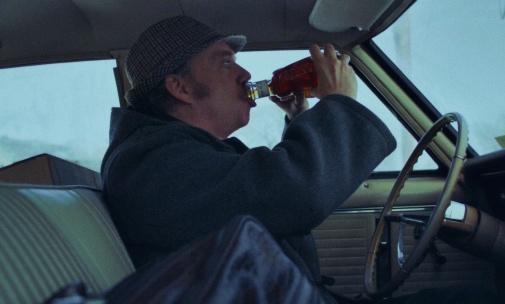
Previous Split Decisions: